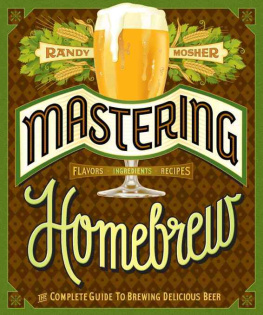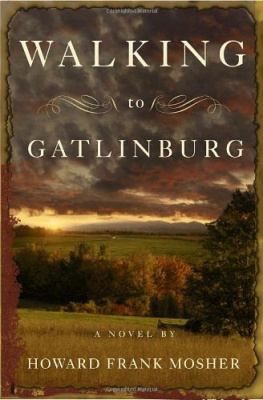Steven W. Mosher - Broken Earth. The Rural Chinese
Here you can read online Steven W. Mosher - Broken Earth. The Rural Chinese full text of the book (entire story) in english for free. Download pdf and epub, get meaning, cover and reviews about this ebook. year: 1983, publisher: The Free Press, genre: Detective and thriller. Description of the work, (preface) as well as reviews are available. Best literature library LitArk.com created for fans of good reading and offers a wide selection of genres:
Romance novel
Science fiction
Adventure
Detective
Science
History
Home and family
Prose
Art
Politics
Computer
Non-fiction
Religion
Business
Children
Humor
Choose a favorite category and find really read worthwhile books. Enjoy immersion in the world of imagination, feel the emotions of the characters or learn something new for yourself, make an fascinating discovery.

- Book:Broken Earth. The Rural Chinese
- Author:
- Publisher:The Free Press
- Genre:
- Year:1983
- Rating:3 / 5
- Favourites:Add to favourites
- Your mark:
- 60
- 1
- 2
- 3
- 4
- 5
Broken Earth. The Rural Chinese: summary, description and annotation
We offer to read an annotation, description, summary or preface (depends on what the author of the book "Broken Earth. The Rural Chinese" wrote himself). If you haven't found the necessary information about the book — write in the comments, we will try to find it.
Broken Earth. The Rural Chinese — read online for free the complete book (whole text) full work
Below is the text of the book, divided by pages. System saving the place of the last page read, allows you to conveniently read the book "Broken Earth. The Rural Chinese" online for free, without having to search again every time where you left off. Put a bookmark, and you can go to the page where you finished reading at any time.
Font size:
Interval:
Bookmark:
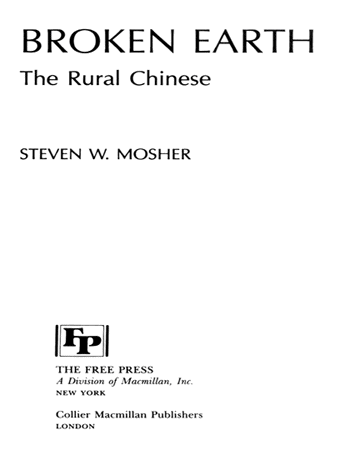
Copyright 1983 by The Free Press A Division of Macmillan, Inc.
All rights reserved. No part of this book may be reproduced or transmitted in any form or by any means, electronic or mechanical, including photocopying, recording or by any information storage and retrieval system, without permission in writing from the Publisher.
The Free Press
A Division of Macmillan, Inc.
866 Third Avenue, New York, N.Y. 10022
www.SimonandSchuster.com
Collier Macmillan Canada, Inc.
First Free Press Paperback Edition 1984
Printed in the United States of America
Paperback printing number
1 2 3 4 5 6 7 8 9 10
Hardcover printing number
2 3 4 5 6 7 8 9 10
Library of Congress Cataloging in Publication Data
Mosher, Steven W.
Broken earth.
Includes index.
1. ChinaRural conditions. I. Title.
HN733.5.M67 1983 306.0951 83-47982
ISBN 0-02-921700-8
eISBN-13: 978-1-439-11967-9
ISBN-13: 978-0-029-21720-7
ISBN 0-02-921720-2 pbk.
For Huiya
As part of the extension of ties between the United States and the Peoples Republic of China heralded by the establishment of diplomatic relations on January 1, 1979, a cultural exchange program was initiated. It was as a research scholar under this program that I lived in a Chinese village during the last half of that year and the first half of the next. My goal was a community study of a production brigade, what in the years before collectivization would have been called a village, focusing on the usual array of anthropological exoticakinship patterns, marriage customs, religious ceremonies, social structure, and the like. But upon returning to Taiwan (and another research project) at the end of my fieldwork and beginning to sift through and reorganize the copious notes I kept while in China, amounting to well over 100 notebooks in all, I discovered that they contained another story as well. Putting aside the esoteric and the academic, postponing the process of statistical analysis and sociological generalization, I found that there remained a tale of what it is like to live in todays China, told by the rural Chinese themselves.
In retelling their anecdotes and observations, I have sought to bring the rural Chinese within reach, to describe what it is like to live with them in their villages and celebrate the lunar New Year with jian dui pastries and lion dances, to mourn with them at funerals and rejoice with them at marriages and the birth of sons, to sit with them at collective meetings and listen to them discuss crops and policy, to take tea with them in their teahouses at dawn and to enjoy a game of basketball with them at dusk, coming over time to appreciate the bitterness of their past, the frustrations of their present, and their hopes for the future.
While this is a report of people encountered, events experienced, and anecdotes related to me during my year in China, it is also an attempt to compose from this collection of ethnographic miniatures a portrait of the rural Chinese. I do not pretend that my rendering encompasses all that it means to be a peasant in the Peoples Republic. Nearly all of my time in China was spent in the southern province of Guangdong (Kwangtung), and my configuration of what it is like to live in village China is grounded largely in the experiences of southern Chinese. But in understanding a people as different from ourselvesalong whatever social, economic, cultural, or political dimension one cares to measureas the Chinese, depth is often more important than breadth. All too often descriptions of the fabric of Chinese life have been cut from the whole cloth of stilted Marxist rhetoric as preserved in issues of the Beijing Review (Peking Review) or stitched together from the odd tatters of impression and sentiment collected during month-long tourist junkets. What I have attempted here is a more intimate, full-bodied description.
Though I was able to carry out my fieldwork without hindrance or even surveillance by the authorities, the Peoples Republic is nevertheless a police state, and those who were critical to me of the current order would face reprisals, up to and including lengthy imprisonment, if their identities should become known. This is especially so now that Beijing, furious over my unmasking of rural problems, has denounced me as a foreign spy and has demanded that I be punished. I have thus been led to take every possible precaution that this account does not cause unpleasant repercussions for those who have given me their confidence. While informants, usually higher-ranking cadres, who adhered closely to the official line have been correctly identified, those persons who ventured less orthodox opinionsand these are in the majorityhave been carefully disguised by giving them fictional identities, that is, by altering their names and other unimportant aspects of their lives. These changes in no way affect the substance of their conversations with me, but should protect them from official retribution for their honesty. Considerations of confidentiality also dictated against writing the story of the village that I lived inthough I hope to do so in the futureand I have here drawn fairly heavily on visits I made to other communities in other communes during the course of my study, all of which are referred to by invented English names. The descriptions of these visits are otherwise accurate, just as the quotations, though not always attributable, are genuine. I recorded interviews as they were in progress and made notes on less staged encounters immediately after they occurred.
I have chosen to romanize Chinese words after the Pinyin system currently in use in the Peoples Republic and adopted by the Western press, rather than after the Wade-Giles system favored by scholars, though I have retained older conventional spellings of names of people and places when these are so well known that to do otherwise would risk confusion. Thus I have left Jiang Jieshi as Chiang Kai-shek, and Guomindang (Nationalist Party) as Kuomintang. For less well-known places and people I adhere strictly to Pinyin, though to assist the reader in making the necessary mental connection, the first appearance of a new Pinyin spelling is followed with its more familiar spelling in parenthesis. Chinese names are written in their proper order, with last names first and first names last.
A number of people have helped with the manuscript in various stages of preparation. Joyce Seltzer was everything an editor should be in giving constant encouragement and trenchant suggestions. Cynthia Parker and Cindy Nil typed many chapters of the manuscript as an act of friendship. My wife, Huiya, to whom this book is dedicated, was my most critical reader as she translated it into Chinese. Karen Strauss of The Free Press dealt expertly with the media when the storm of controversy over my research findings broke.
My primary debt, all the more deeply felt because it is impossible to repay, is to those Chinese, most of whom must remain anonymous, who led me to an understanding of their native land. Not least among those who can be mentioned is Joceline Lau, a Hong Kong Chinese who interrupted her education to serve as my research assistant largely out of a personal desire to come to a better understanding of conditions in her homeland. Her enthusiasm for the New China often spilled over into our daily discussions of the days interviewing. Much has changed for the better in the past thirty years, she stressed on more than one occasion. You shouldnt be oversensitive to the venality of a few bad officials, the excesses of current campaigns to control births and modernize, or the superstitions of a handful of old women. Valuing her admonitions as a corrective to any possible ethnocentrism on my part, I tried to focus on the positive, especially near the end of my stay when the burden of confessions, confidences, and complaints that officials, workers, and peasants alike had disclosed to me had grown achingly heavy, but in the end I could only report what I had seen and heard. I alone bear responsibility for the account of life in contemporary rural China that follows.
Font size:
Interval:
Bookmark:
Similar books «Broken Earth. The Rural Chinese»
Look at similar books to Broken Earth. The Rural Chinese. We have selected literature similar in name and meaning in the hope of providing readers with more options to find new, interesting, not yet read works.
Discussion, reviews of the book Broken Earth. The Rural Chinese and just readers' own opinions. Leave your comments, write what you think about the work, its meaning or the main characters. Specify what exactly you liked and what you didn't like, and why you think so.

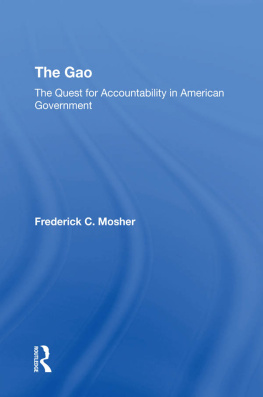
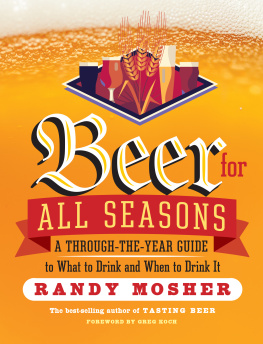
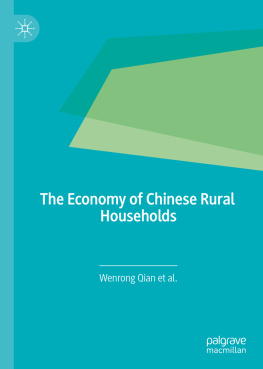

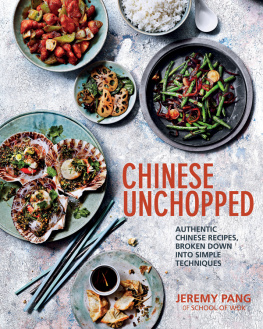
![Randy Mosher - Beer for all seasons : [a through-the-year guide to what to drink and when to drink it]](/uploads/posts/book/74958/thumbs/randy-mosher-beer-for-all-seasons-a.jpg)
